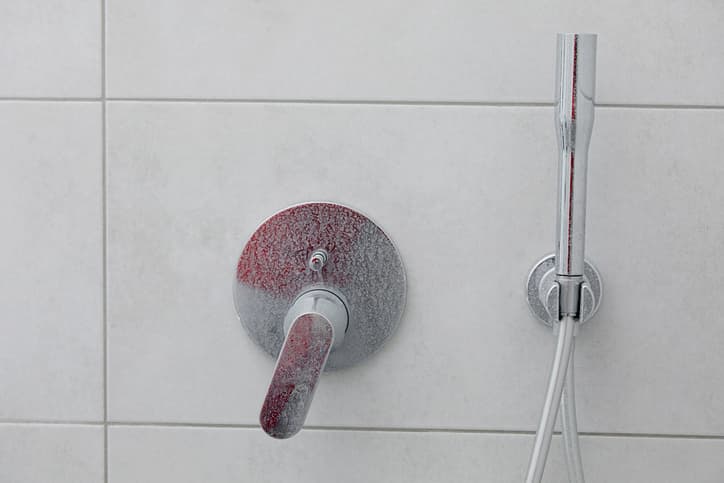Las Vegas residents and homeowners know all too much about the hard water in this city. Although hard water is not an immediate threat to you or your family, it can wreak havoc on your plumbing system over time. In fact, you may not even realize that hard water is to blame for some of the plumbing issues you’ve experienced. The good thing is you can reduce the effects of hard water with the help of a professional Las Vegas plumber.
What is Hard Water?
When we refer to water as “hard,” it doesn’t mean the physical property of the water. It’s actually related to the level of mineral content in the water. Hard water has a relatively high concentration of dissolved minerals, most commonly calcium and magnesium. When the mineral level of water is very high, it can cause all sorts of damage, including corrosion and low water pressure.
Why is Las Vegas Water So Hard?
Las Vegas water contains high levels of calcium and magnesium, both of which are non-toxic minerals. The reason the mineral concentration is so high is due to the fact that the majority of our water supply is coming from the Colorado River. The Colorado River happens to be very mineral-dense as it passes through several states, picking up sediment along the way. It eventually deposits the water into Lake Mead, our primary source of water in Las Vegas.
What Issues Are Caused by Hard Water?
Although hard water isn’t an instant danger to you or your plumbing system, it can lead to plumbing issues over time if precautions are not taken to mitigate its effects. Here are some problems you might encounter due to hard water in your Las Vegas home:
Restricted Water Flow
The minerals in hard water have the potential to build up slowly within your pipes and plumbing fixtures. This buildup can slow down the flow of your water system by not allowing as much water to pass through the pipes. This can also put added strain on your pipes, which can quickly become an even bigger issue.
Reduced Water Pressure
When your pipes and plumbing fixtures have extensive mineral buildup, it creates an obstruction that noticeably reduces the water pressure in your home. If you turn your faucet all the way up but are still not getting a strong stream, it may be the result of hard water.
Sediment Buildup on Plumbing Fixtures
If you live in Las Vegas, you may start to notice a white crusty buildup on your faucets, drains, or other plumbing fixtures. This hard film of minerals accumulates as the water evaporates and leaves the calcium and magnesium behind. Not only is it an aesthetic nuisance, but it could also impede the function of these fixtures.
Related: How Do Water Softeners Work
Dry or Irritated Skin
For people with sensitive skin, hard water can cause more issues other than just plumbing problems. You may notice your skin feels dryer or as if your soap doesn’t completely wash off in the shower. Your skin may be reacting to the excess minerals in the hard water.
Dishware and Laundry Issues
Hard water doesn’t play well with glassware, dishes, and utensils. It can often leave a film or spots that make them appear unclean. Likewise, your laundry detergent may not foam up as much as it should, leaving your clothes looking a little dingy.
Do you have questions about hard water in your home or business? Call the plumbing experts at Larkin Plumbing today.
What Can You Do About Hard Water in Las Vegas?
The easiest way to combat the effects of hard water is to install a water softening system in your Las Vegas home. A water softener reduces excess minerals and metals in your water supply using an ion exchange system. Basically, calcium and magnesium ions are replaced with sodium ions as the water runs through the water softener tank.
An ion-exchange water softener will start working immediately to help alleviate some of the issues caused by hard water. A professional Las Vegas plumber will install a water softener that is the right size for your home and water usage, as well as make sure it is working properly and delivering a more balanced water supply. If you want to learn more about water softeners and our installation services, contact the experts at Larkin Plumbing today!
Related: What Factors Impact Water Quality


